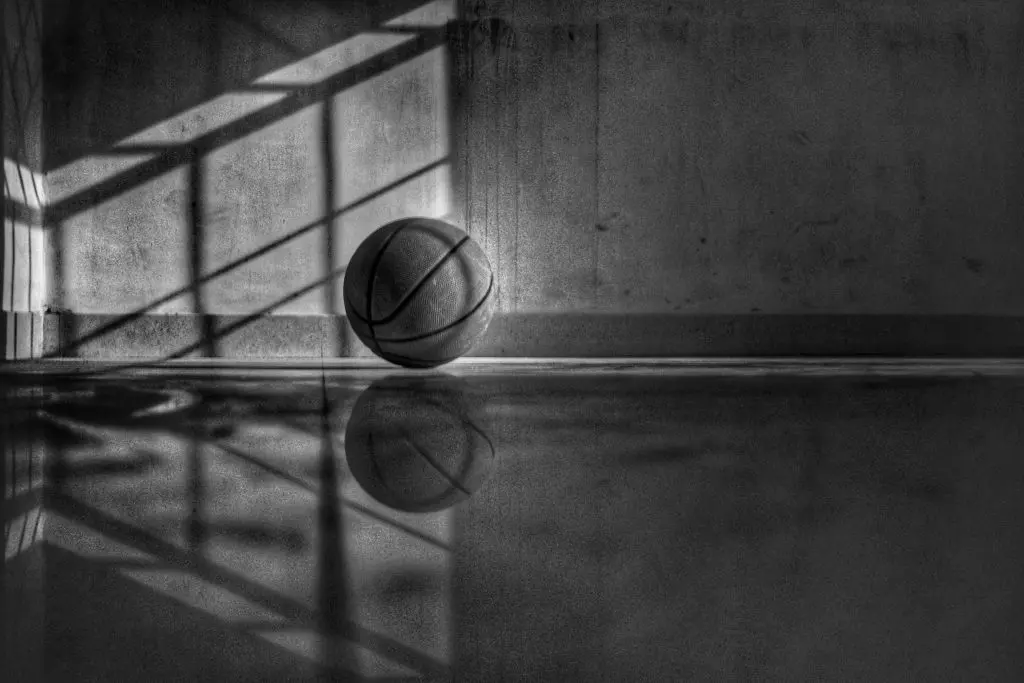How to Play Basketball with Bad Teammates
We’ve all been there, whether you’re looking to play a quick pick-up game of basketball or are playing in a competitive league, inevitably, you will have to play with a bad or rather sucky teammate. Whether they play selfish basketball, bully basketball, or simply do not understand the basic mechanics of the game, playing with a bad teammate can be intensely frustrating.
That is why, below, we are going to review and discuss just how to play basketball with bad teammates. And while playing basketball with bad or sucky teammates can be frustrating, it doesn’t need to be so. Rather, by taking some actionable steps, you can help to lift your teammates, and your team, to glory.
What Is Considered a Bad or Sucky Teammate in Basketball?
On the basketball court, there are many different variations of a bad or sucky teammate. Admittedly, and perhaps the most common, is a teammate who simply misunderstands the basic mechanics and fundamentals of the game. These teammates, often, do not have a basic grasp of the game and are often weaknesses on a team, which the opposing team can easily exploit.
Secondly, and perhaps even more frustrating, are the teammates which play selfish basketball. These teammates and players believe in their own abilities more than that of the players around them. Often, these players look to shoot the ball often and rarely, if ever, are willing to pass the ball.
And lastly, are the teammates and players who play so-called, “loud ball”. Loud ball, quite simply, is a form of basketball in which a player acts aggressively, often in an attempt to intimidate and overcome the opposing teams’ players. However, and quite often, their attempts to intimidate opposing players are met with jeers and do little to intimidate the opposing team.

Why is it Important to Learn How to Play with Bad Teammates?
While unfortunate, it is important to learn how to play with bad, or sucky, teammates due to the sheer probability of encountering one. That is, if you play basketball frequently enough, you will inevitably find yourself playing with a player who is rather bad.
And although the game may come and go, particularly if you are simply playing a pick-up game at your local park, you may find yourself playing with a bad teammate or player on a league team. In this scenario, you will essentially be forced to play with that player for the entirety of the season.
Learning how to play with a bad or sucky teammate will not only help you to win more game but is also a useful skillset to learn. Whether on the basketball court, in the classroom, or in the corporate world, you will need to learn how to deal with bad and generally sucky individuals.
As such, learning how to deal with, and help improve, these individuals is a skillset which can come in handy throughout your daily life. And while not easy, it is definitely a worthwhile endeavor and one that will reap immense rewards.
Set an Example for Your Teammates
While you may not be able to control the actions of an aggressive, bad, or sucky teammate, you can control how you act while on the court. That is, you should always strive to set an example of what proper basketball and basketball etiquette is.
Don’t let a bad or sucky teammate or individual get the best of you. Basketball is equal parts a physical and mental game and allowing a bad teammate to frustrate you will diminish your own abilities on the court.
Rather, remain calm, cool, and collected throughout. Similarly, and in doing so, you will set an example for how the team is structured. If you remain calm and collected throughout, your teammates will follow suit and come together to pull through.

Continue Playing Your Best Basketball
In a similar vein, when it comes to playing with a bad or sucky teammate, it is often too easy to simply throw in the towel and call it quits. This is wrong and a mistake. Rather, you should continue to play your best basketball and perform to your abilities.
Doing so may not change a bad player but you can help your team to remain competitive on the court. That is, if you continue to play to the best of your abilities, you may be able to help your team overcome a weakness on your team and win the game.
Be a Mentor
This is particularly true and helpful when playing with a bad teammate. While it is easy to get frustrated, you should remember that we were all just learning how to play the game at some point. And similarly, this bad player may simply not know or understand the rules and mechanics of the game.
Rather than getting frustrated, be a mentor and a source of knowledge for that player. Speak to them openly and honestly and let them know where they can improve and how certain actions they’ve taken are detrimental to the team.
By speaking and engaging with a player who is playing poorly, you will be able to help and assist them to increase their own basketball knowledge and IQ. And while you may not see immediate results, eventually, with time and patience, those players will begin to learn the ropes of the game.

Be a Leader on the Court
Similarly, and particularly when dealing with an obnoxious teammate or player, there may be instances and times where you will need to be a leader on the court. That is, you will need to corral your team and teammates and continue to play to the best of your abilities.
This is most easily done by remaining calm and collected but stern in your expectations. Set the tone with your teammates on what you expect and how you want to play the game. Be aggressive and let your teammates know that there are expectations on the court which they must meet to continue playing.
Speak to the Aggressive Player in Private
In addition, it may also be useful to pull the aggressive player to the side and speak with them regarding their actions on the court. Let them know how their actions are affecting the team and how their style of play is detrimental to the team as a whole.
And while some players will dismiss those claims, it is important to attempt to diffuse the situation and help the aggressive player to see the error in their ways. And while doing so may be intimidating, it is an important and necessary step to take to help better the team.

Speak to Your Coach
Lastly, if all else fails, don’t be afraid to bring the issue up with your coach. If a player is acting aggressively or simply playing poorly, speaking with your coach will help to bring it to their attention and allow them to resolve the issue.
However, if a player is acting overly aggressive or intimidating to other players, we recommend speaking to your coach immediately. Letting them know and sharing your concerns will help to quell the situation and make the team feel less tense.
